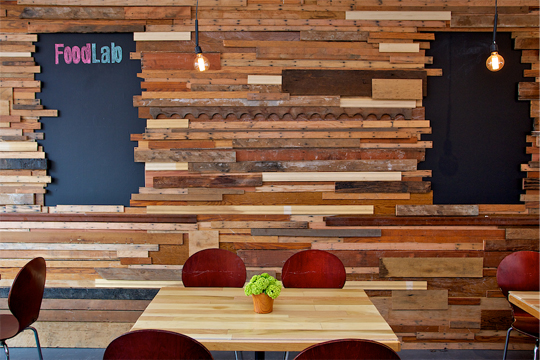In this challenging economy, people are getting creative about what kinds of businesses they start and how they fund them.
Food trucks are a perfect example of a low barrier to entry business that has boomed during the recession. For those outside the centers of food truck culture, they now go far beyond the “roach coach” stereotype of the past. Collectively they offer a dizzying array of foods – from authentic ethic street food, to surprising food mashups, to haute cuisine – served from wildly colorful trucks reminescent of jeepneys. Today foodtrucks are synomous with creative food, informality, and fun.
They offer many advantages for small business entrepreneurs too. Infrastructure costs are substantially lower than brick and mortar restaurants, you can move as seasons and events demand, and staffing needs are minimal. This allows for greater creativity and direct, regular interaction with your customers. Yes, it’s labor intensive, but many enjoy the creative freedom and sociality that are part and parcel of the business.
But there’s a problem.
Unlike my hometown of Portland, which has a number of food truck “pods,” where carts are parked semi-permanently in groups and have access to electricity and other food business support, San Francisco’s street food vendors are largely mobile. That means they may travel to one location to prep their food, another to service the truck, and park it elsewhere when not in use. Having lived in congested San Francisco, I know that driving time alone can eat a huge chunk of time out of your day.
FoodLab is planning a solution: the first-ever shared-use commercial kitchen and mobile truck service station in San Francisco.
FoobLab’s goal is to support the long-term viability of existing food trucks, and incubate new ones. FoodLab would provide a licensed commercial kitchen, space for truck servicing, cold, dry, and equipment storage as well as office space and a conference room. They intend to offer food truck parking for tenants as well, likely a huge draw given how scarce parking is in San Francisco.
Further supporting their goal, FoodLab intends to become a hub for food entrepreneurs with in-house consultants to serve tenants, some of which may be brand new to the food business.
Also open to caterers, confectioners, bakers, personal chefs, farmers market vendors and artisan producers, FoodLab’s timing may be ideal to further amplify an already burgeoning local food scene. By providing a full suite of services, tenants will be able to focus on their core business –making and vending fresh, local food.
The initial incarnation of FoodLab launched at the Renoir Hotel in late May, and has added hosting pop-up restaurants, featuring both established and up and coming chefs. It’s a smart addition, as special, time limited opportunities to experience a certain chef or type of food will likely be popular in food obsessed San Francisco. The food truck parking and equipment storage don’t seem to be included in the offerings as of yet.
Will FoodLab realize its vision? Let’s hope so, and encourage similar ventures to launch in other cities. Such innovations support small, local businesses, and our ability to enjoy a great diversity of tasty local food.
Contact FoodLab here to learn more about their plans.









